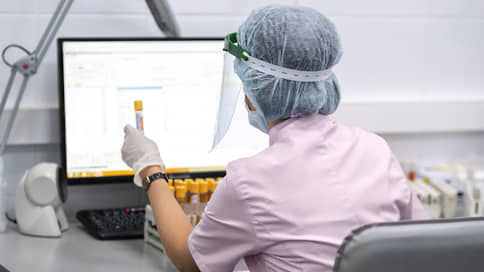And covid is import-substitutable – Newspaper Kommersant No. 146 (7347) of 08/12/2022
[ad_1]

In Russia, six cases of a new strain of coronavirus “deltacron” have been confirmed. According to scientists from the Smorodintsev Research Institute of Influenza, the birthplace of the delta and omicron hybrid is Russia. At least nowhere else in the world has it been found. Experts emphasize that such a combination is very rare, since the delta strain has practically disappeared. At the same time, deltacrone is unlikely to change the course of the pandemic. As clarified in Rospotrebnadzor, patients in whom this hybrid variant was detected had a mild form of the disease, and none of them required hospitalization.
The evolution of the coronavirus is tracked on the GISAID database, where scientists from all over the world send deciphered samples. In August, researchers at the Smorodintsev Research Institute of Influenza uploaded 119 fresh July genomes of the coronavirus from St. Petersburg into the system. More than 80% of them turned out to be sub-lines of the “omicron” – BA.4 and BA.5. However, there were also alarming patterns marked with the “red flag” ML (multiple lineages). American geneticist Dmitry Pruss, who was the first to pay attention to the next “loading” of Russian scientists, explained RBCthat they require additional analysis due to the presence of both “delta” and “omicron” genome elements. According to him, such a combination is very rare, since the delta strain has practically disappeared. He noted that this hybrid type of coronavirus has not yet been detected in any other country in the world, therefore, most likely, its homeland is Russia.
On Thursday, Rospotrebnadzor confirmed the circulation of the so-called deltacron. According to the press service of the department, in the country discovered six cases of this variant: one in Moscow and five in St. Petersburg.
At the same time, there is no reason to believe that it leads to a more severe course of the disease or has a greater ability to be transmitted from person to person.
Rospotrebnadzor noted that the patients had a mild illness, none of them required hospitalization.
Deltacron belongs to the non-dominant lines of COVID-19 and currently does not have a significant impact on the epidemiological situation either in St. Petersburg or in Moscow, Rospotrebnadzor specified. According to experts of the department, the epidemiological situation in these cities is similar to the situation in the whole country and is characterized by the “active spread” of sub-variants of “omicron” – BA.4 / BA.5 with a predominance of BA.5. Note that in June Rospotrebnadzor informedthat Omicron accounts for nearly 98.3% of all COVID-19 cases detected in the country.
An epidemiologist, director of the Institute for Interdisciplinary Studies at the European University at St. Petersburg, Anton Barchuk, is sure that now there are “exactly more than six” carriers of deltacron. It is difficult to say how much, because not all virus samples are transferred for sequencing.
However, Mr. Barchuk notes, it is not absolute, but relative figures that are important, and just in relation to the general sample, “deltacrones” are clearly in the minority. According to him, there are much more variants of coronavirus than scientists know: “It is important that there are mutations that fundamentally change the course of the pandemic, like delta and omicron. And there is a huge number of options that are being watched. And until we get data on how they spread and what additional effects they have, then we can’t say that they will affect the pandemic.”
Note that “deltacron” is not the first strain from Russia. On June 9, 2021, the World Health Organization (WHO) included the AT.1 coronavirus variant on the monitoring list. It was imported to Russia from Europe, but in the process of circulation it acquired unique mutations, for which it received the name “Russian”. AT.1 fell into the so-called first observation priority group. A year ago, it included four more strains: “this”, first registered in the UK and Nigeria, “iota” from the US, “kappa” from India and “lambda” from Peru. None of them, including the “Russian”, survived the coronavirus evolution. Anton Barchuk believes that the “deltacrone” will have little effect on the course of the pandemic. Immunologist Vladislav Zhemchugov, in an interview with the media, also urged citizens to calm down: “We just need to be patient for three months, we will wait for messages from Rospotrebnadzor, how much the new virus will replace the current one.”
At the same time, the incidence of COVID-19 in Russia continues to grow.
As follows from data headquarters on August 11, the daily increase in new cases for the first time since March exceeded 25.8 thousand cases, which is almost 2 thousand more than the day before.
More than 2.5 thousand people were hospitalized, 52 patients with COVID-19 died. Predicting the further development of the coronavirus wave, Anton Barchuk notes that daily indicators will depend on the intensity of testing: “If we follow a rather optimistic scenario that the coronavirus turns into a constantly circulating respiratory virus, there will be no severe course, hospitalizations, then in many respects the intensity of testing, which has now plummeted will determine the number of cases.”
[ad_2]
Source link








